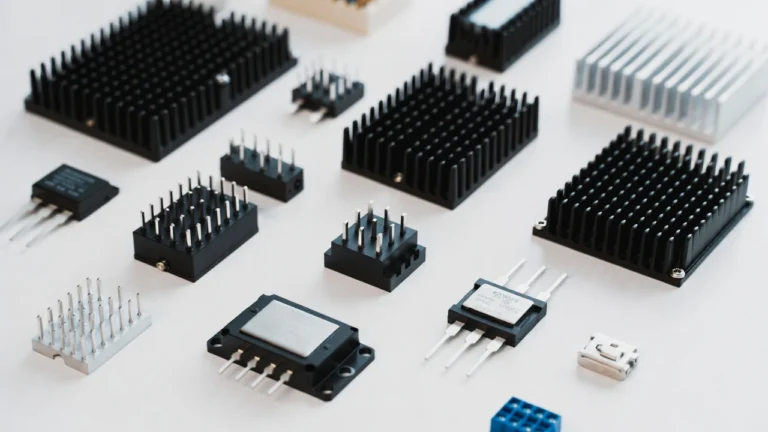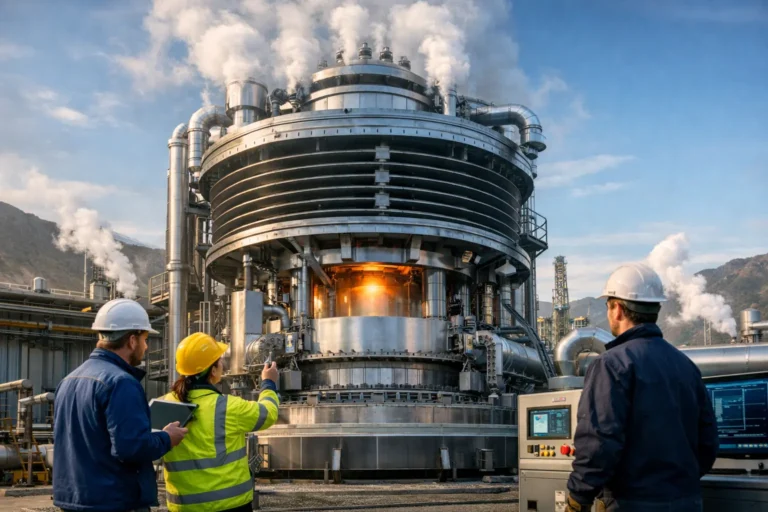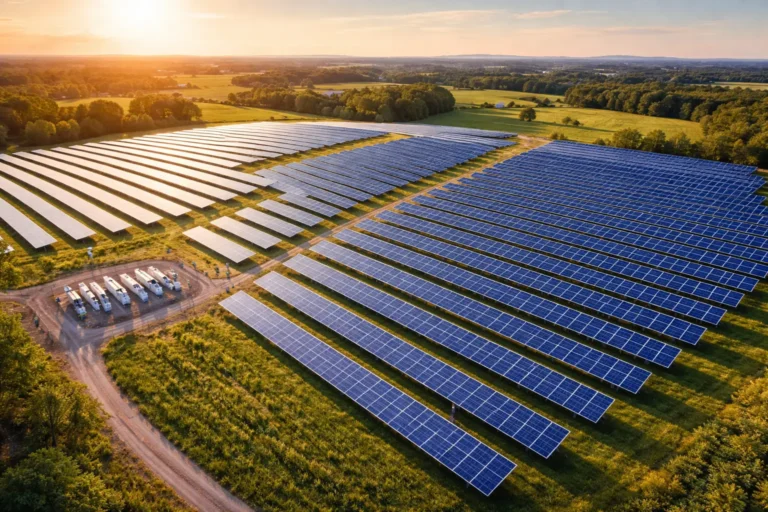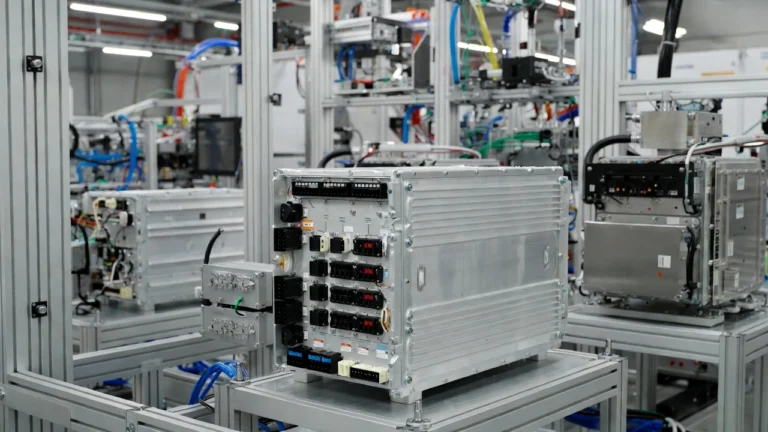
WATT Fuel Cell and HIPAWA Partner to Bring Clean, Reliable Microgrids to Hawaiian Homes
WATT Fuel Cell Corporation and the Hawaii Pacific Alliance for Worldwide Advancement (HIPAWA), a Native Hawaiian- and Polynesian-led consortium dedicated to advancing clean energy and climate technology solutions, have announced a new partnership that aims to transform the energy landscape across Hawaii. Under a recently signed purchase agreement, HIPAWA will acquire eight demonstration microgrid systems from WATT Fuel Cell Corporation, marking the first step in a major rollout designed to deliver sustainable, affordable, and resilient power to Hawaiian households.
A New Model for Energy Independence
The collaboration introduces HIPAWA’s innovative “Utility Lite” model — an approach that decentralizes power generation by integrating multiple clean technologies into localized systems. Each demonstration unit will combine WATT’s HOME™ propane-powered solid oxide fuel cell system with solar photovoltaic panels and battery energy storage, providing homeowners with continuous, reliable power 24 hours a day, seven days a week.
This hybrid configuration is designed to achieve two key outcomes: significantly reducing energy costs for households while simultaneously strengthening energy resilience in communities frequently affected by grid disruptions or extreme weather events. For Hawaii, where electricity costs are among the highest in the United States, the introduction of such hybrid microgrids represents a meaningful step toward energy self-sufficiency and carbon reduction.
Expanding Clean Energy Access Across the Islands
The demonstration systems are part of a broader plan between HIPAWA and WATT Fuel Cell to expand Clean Energy, distributed energy generation throughout Hawaii. Alongside the purchase agreement, HIPAWA has executed a letter of intent to purchase over 5,000 hybrid energy systems from WATT over the next three years. Once fully deployed, this initiative could provide more than 350 megawatt-hours (MWh) of clean energy daily, bolstering grid stability and helping Hawaii reach its renewable energy and carbon neutrality targets.
Each household equipped with a WATT HOME system will effectively operate as its own miniature power plant, generating power directly where it’s consumed. This decentralized model not only enhances energy security but also enables two-way power flows—allowing homeowners to feed surplus electricity back into the grid during times of peak demand. As thousands of these systems come online, they could collectively form a distributed power network that supports grid stability while empowering local residents to control their energy future.
A Vision Rooted in Community Resilience
AJ Perkins, President of HIPAWA, emphasized that this initiative is about much more than technology—it’s about community empowerment and energy justice.
“This first order is more than just eight systems—it’s the beginning of a movement,” Perkins said. “We are creating a model for clean, affordable energy that families across Hawaii can count on. These demonstration units will prove what’s possible and set the stage for thousands more. Our goal is to ensure that clean energy is not a luxury, but a reliable and accessible resource for every community.”
HIPAWA’s “Utility Lite” model ensures homeowners can benefit from renewable and resilient power without bearing the financial burden of installation. Through a power purchase agreement (PPA) structure, residents will pay only for the electricity they use, with no upfront capital costs. According to HIPAWA, this model could provide power at roughly 50% lower cost than traditional utility rates, while also offering enhanced reliability during grid outages.
Bridging Traditional Fuels with Modern Clean Technology
One of the partnership’s unique advantages lies in its ability to bridge Hawaii’s most readily available fuel source—propane—with cutting-edge clean energy technologies. The WATT HOME system runs on propane or natural gas, converting these fuels into clean, efficient electricity through its proprietary solid oxide fuel cell (SOFC) platform. Unlike traditional generators, the system produces minimal emissions and operates quietly, making it ideal for residential use.
“These initial demonstration hybrid WATT HOME units will touch the most vulnerable communities first,” said Keoni Ford, President of DIBS Hawaii and Executive Director of Hawaii’s Carbon Capture Storage and Utilization (CCSU) Consortium. “This partnership bridges the gap between our most available and abundant fuel source — propane — and a fuel cell technology that puts firm clean energy resilience in the hands of the local homeowner.”
By using existing propane infrastructure while adding solar and storage components, the systems offer a transitional pathway toward a fully renewable energy ecosystem. This approach allows households to enjoy cleaner power today while paving the way for future adoption of renewable fuels like green hydrogen.
Technology That Works “All the Time”
At the heart of this collaboration is WATT Fuel Cell’s Working All the Time™ philosophy—creating energy systems designed for continuous, dependable operation regardless of weather conditions or grid status. WATT’s Chief Commercial Officer, Danielle Ramaley, highlighted how the integration of solar, storage, and fuel cell technology results in a seamless energy experience for users.
“This partnership is about giving people peace of mind,” Ramaley said. “With solar, storage, and our WATT HOME fuel cell system working together, WATT has created a Working All the Time™ clean energy solution. Customers will know their lights will stay on and their costs will stay down. We’re proud to join HIPAWA in bringing this vision to life for Hawaii.”
The systems are compact, modular, and designed for easy installation in residential settings. Their hybrid configuration ensures that when solar generation drops—such as during nighttime or cloudy days—the fuel cell automatically provides consistent backup power, maintaining a continuous supply without the need for diesel generators or noisy inverters.
Supporting Hawaii’s Clean Energy Transition
Hawaii has set one of the most ambitious renewable energy goals in the nation: achieving 100% clean energy by 2045. Yet, challenges such as high infrastructure costs, geographic isolation, and vulnerability to natural disasters have made this goal difficult to achieve. Partnerships like the one between WATT Fuel Cell and HIPAWA directly address these challenges by bringing scalable, resilient, and community-driven solutions to the forefront.
By empowering local communities with clean microgrids, the initiative helps reduce dependence on imported fuels, stabilizes power costs, and enhances resilience against grid disruptions caused by storms, wildfires, or other emergencies. Moreover, the project supports Hawaii’s broader economic development goals by creating local jobs in system installation, maintenance, and energy management.
Source Link: https://www.businesswire.com/










